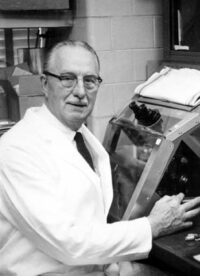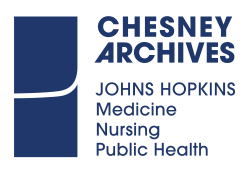George O. Gey Collection

George Otto Gey
photograph by John Rash
Collection Overview
Creator: Gey, George Otto (1899 - 1970)
Collection Date: 1918 - 1974
Extent: 15 linear feet
Biography
George O. Gey, a pioneer in tissue culture, was born in Pittsburgh. He received his B.S. in 1921 from the University of Pittsburgh. He enrolled in the Johns Hopkins University School of Medicine in 1922, but due to financial constraints deferred completing his medical degree. Between 1923 and 1929 Gey was a cancer research fellow at Columbia Hospital in Milwaukee. While there, he met and married Margaret Finney Koudelka. Gey returned to the Johns Hopkins University School of Medicine in 1929, where he was appointed director of the Tissue Culture Laboratory in the department of surgery. Gey completed his M.D. in 1933. He served on the faculty of the Johns Hopkins University School of Medicine and School of Hygiene and Public Health and was the director of the Finney-Howell Cancer Research Laboratory at The Johns Hopkins Hospital.
Scope and Content
The George O. Gey Collection spans his entire career, with the bulk of the material from his tenure as Director of the Finney-Howell Cancer Research Laboratory. Included are correspondence with individuals, industries, granting agencies, foundations, and other organizations; grant records (including proposals, applications, budgets, and reports); laboratory progress reports; and reprints. Other professional materials include records of the Tissue Culture Association and Gey’s notes and reprints. The collection also contains a selection of personal materials, such as photographs, family correspondence, items from World War I, picture postcards, certificates, and memorabilia. In addition there are reels of motion picture film, books, surgical instruments, and laboratory equipment.
